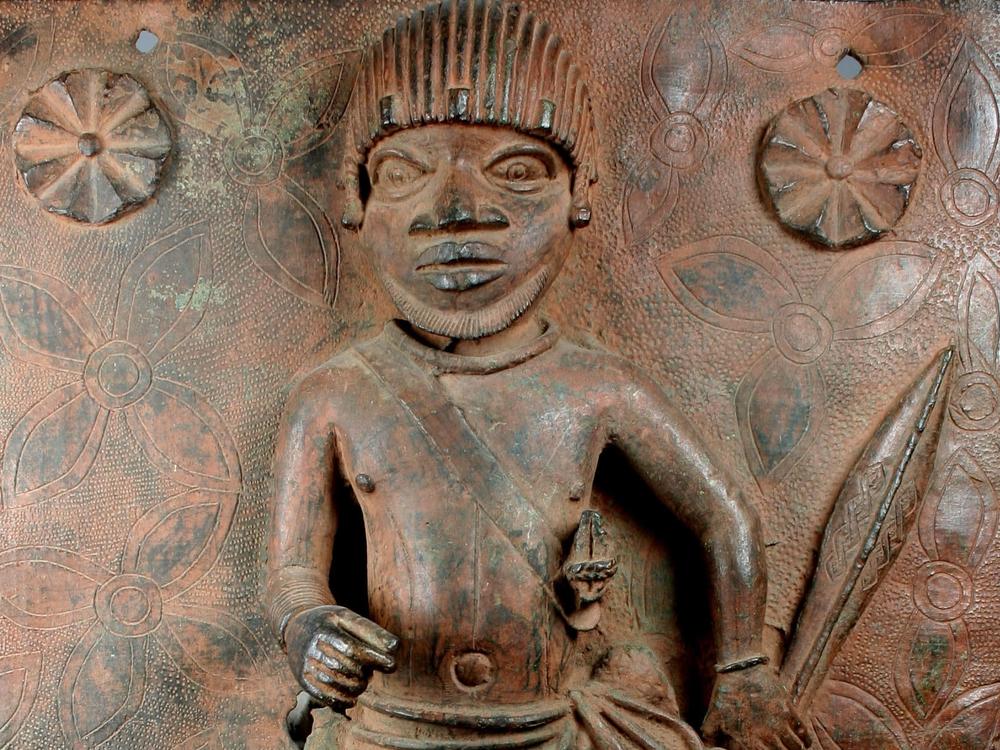Section Branding
Header Content
Metropolitan Museum of Art Sends Three Benin Bronzes Home To Nigeria
Primary Content
Beautiful bronze sculptures and castings from West Africa have long been exhibited in some of the world's most august institutions, and the Metropolitan Museum of Art announced Wednesday it's returning three of these artworks to Nigeria. They include two 16th-century brass plaques created at the Court of Benin, and a brass head produced in Ife around the 14th century.
"The ... plaques produced at the Court of Benin, Warrior Chief and Junior Court Official, were among the works removed from the Royal Palace in 1897 during the British military occupation of Benin," the Met explained in a statement. (Borders have shifted over the years and the erstwhile Kingdom of Benin, from whence these artworks originated, is in what's now southern Nigeria.)
"Following that military campaign, they entered the collection of the British Museum, London, from 1898 to 1950," the statement continues. "In 1950–51, the British Museum transferred these two plaques (and 24 others) to the National Museum in Lagos. Although they were never deaccessioned by the National Museum, the two plaques entered the international art market at an unknown date and under unclear circumstances and were eventually acquired by a New York collector."
The mysterious collector donated the works — and his other Benin bronzes — to the Met in 1991. Over the past year, the Met said it's researched their provenance, in collaboration with the Nigerian National Commission for Museums and Monuments. It decided to return the works to Nigeria. The Ife Head, originally from Nigeria's Wunmonije Compound, was offered to the Met for sale, and the museum brokered its return.
"The Met is not saying these objects were stolen, so morally, legally we've decided to give them back," noted journalist Barnaby Phillips, author of the recently released book LOOT: Britain and the Benin Bronzes. " They want to be seen as willing and helpful and good partners to Nigeria. And it was noticeable in the statement they're also offering their support for the the proposed Edo Museum of West African art, a museum that does not yet exist."
One day, Phillips explains, backers hope the Edo Museum of West African Art will be built in Benin City to house a world-class collection of Benin bronzes, including ones that were taken illegally and displayed in the West for generations.
"We welcome the rapprochement developing in the museum world, and appreciate the sense of justice displayed by The Metropolitan Museum of Art," said Alhaji Lai Mohammed, Nigeria's minister of Minister of Information and Culture as part of the Met's statement. "Nigeria enjoins other museums to take a cue from this. The art world can be a better place if every possessor of cultural artifacts considers the rights and feelings of the dispossessed."
Copyright 2021 NPR. To see more, visit https://www.npr.org.
Bottom Content

